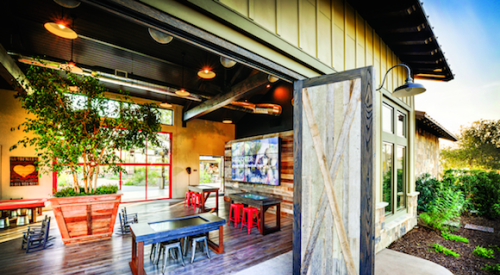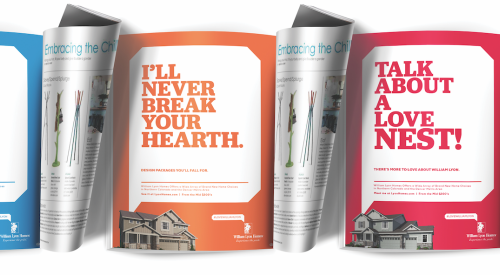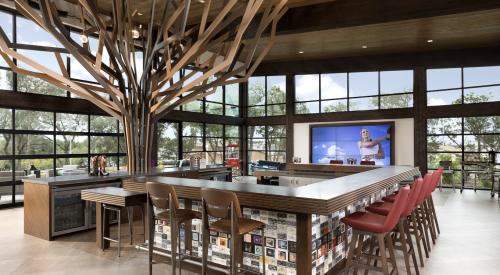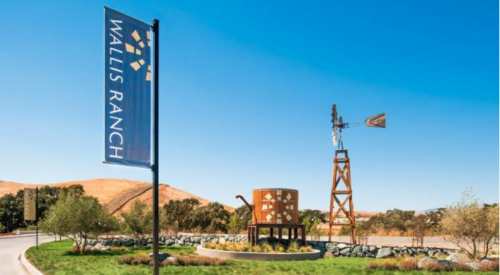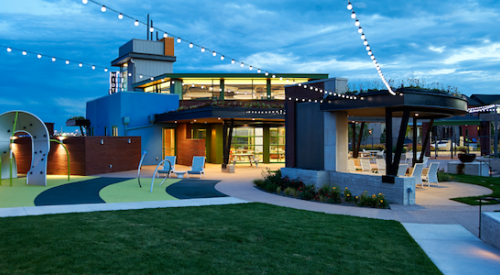 |
||||||||
 |
||||||||
|
|
||||||||
One simple rule governs marketing at Bigelow Homes: say nothing in any communication that any other builder in the market could say. As is usually the case with what looks simple on the surface, the secret of Bigelow Home's marketing efforts goes far beyond the sell line in any advertisement. What Bigelow does so well is articulate to buyers the values that the built-in features of the community deliver: a nurturing environment where children can safely learn and grow, and a real neighborhood with friendly streets and small-town atmosphere designed to connect neighbors one to another.
For example when it comes to energy efficiency Bigelow translate this feature — something any builder can claim to deliver — into buyer value in its advertising by offering its "three-year, $400 heating guarantee." Bigelow makes the abstract subject of safety very real by marketing "Kid-Safe Neighborhoods" and delivering on the promise with HomeTown's curving, winding street design and traffic calming devices that force cars to go slow. Likewise, in every ad and marketing brochure, all photos show actual residents and real events in HomeTown. "Forget the canned shots that show an idyllic world," says vice president/sales and marketing Michael Venetis. "The real thing at HomeTown is better."
The list of differences - and thus the value-based ad messages —goes on and on, but unique ad messages aren't the only departures shoppers experience at the Aurora, Ill. community. Instead of pulling prospects directly into the sales office, Bigelow has visitors start in the welcome center, which also houses the HomeTown Café. Here, a greeter (full-time on weekends and a café staffer during the week) welcomes prospects to the community and begins selling the HomeTown difference. "No other builder has a general store in its sales office," says Venetis, " so people immediately see that we're different from the commodity housing subdivisions." It's not at all uncommon for shoppers first sales experience to come from a HomeTown resident visiting the cafe rather than any sales professional. "Our current homeowners really sell the community. They're as effective a sales agent as we could get."
Just like residents, the sales staff doesn't just demonstrate model homes; instead they demonstrate the whole community. "We talk about kid safe, tell what it means, show how we deliver. We explain how the living lanes and living courts create environments where neighbors can easily get to know one another and build relationships."
As in most areas, Bigelow's buyers typically shop four or five different builders before visiting HomeTown. "Immediately — and I mean in the first three minutes — we stand out as different," says Venetis. "If buyers like it, we know it fast, and if they don't, they move on pretty quickly. We're not wasting time trying to sell people who are not receptive to what we offer." On average, a HomeTown buyers visit the community 2.8 times before signing a contract, a very quick conversion rate given the extensive housing options for buyers to consider.
Hometown's sales staff works buyer registration cards, more than in most builder sales offices, says Venetis because of the extensive housing offering in the community. "Cards help us qualify the prospect and maximize our ad expenditures. We learn what medium generates which buyer for what product line. We target advertising very carefully." Sales steer buyers just as carefully. With the information on the registration cards, agents advise buyers to "look closely at the first two models because they're right in the price range," he adds. "This upfront consulting saves time for us and our buyers and improves customer satisfaction by streamlining the purchase experience."
